I cosplayed as a high school student at the 2015 B1A4 concert in Seoul.
(Note: This is the fun, down-to-earth introduction of myself and Popsori. For a professional description, please go to the Professional page.)
Hey, I'm Jason and I work in the K-pop industry! I've been in the industry for 14 years now. I experienced K-pop during 2nd gen all the way up to 4th gen (2010-2022) while living in Korea. Good times!
These days, I wear two hats. I'm a business liaison that work with K-pop labels and media to further promote that sweet K-pop in the West. Then when I'm not doing business, I'm a content creator that creates in-depth video essays on the business, trends, and history side of the K-pop industry.
Before I did K-pop for a living, I was stuck at a corporate job in California as a software engineer for several years, far away from Korea.
Yet, a phone call from a good friend working in Korea would change my life.
"Yo man, you should come work in Korea," my friend said. "You can teach English there and you always wanted to learn more about Korea and K-pop, right?"
My friend was right. I soon left my cushy corporate career as a software engineer.
Six months later, I found myself in Korea teaching kids. While I was teaching during the day, I worked on becoming a journalist at night, despite no connections and bad Korean speaking skills back then. I was leading a dual life, like Batman, only without the fighting, cool gadgets, or Alfred.
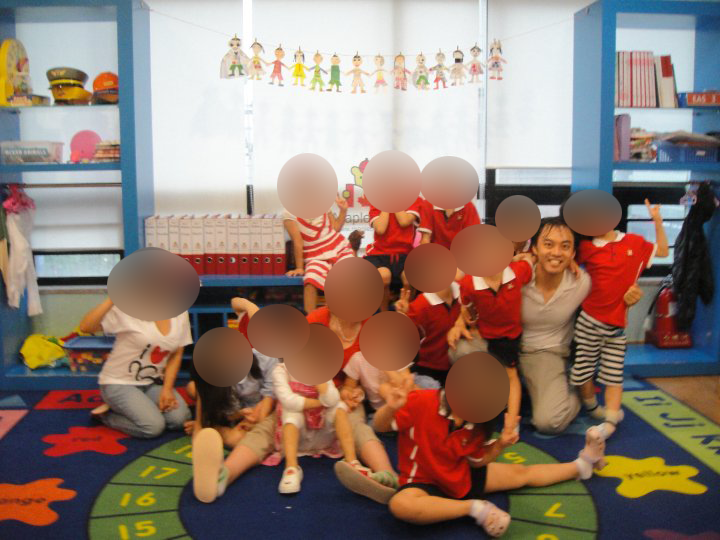
Where my Korea adventures in 2010 first started: teaching energetic and cute kindergarteners!
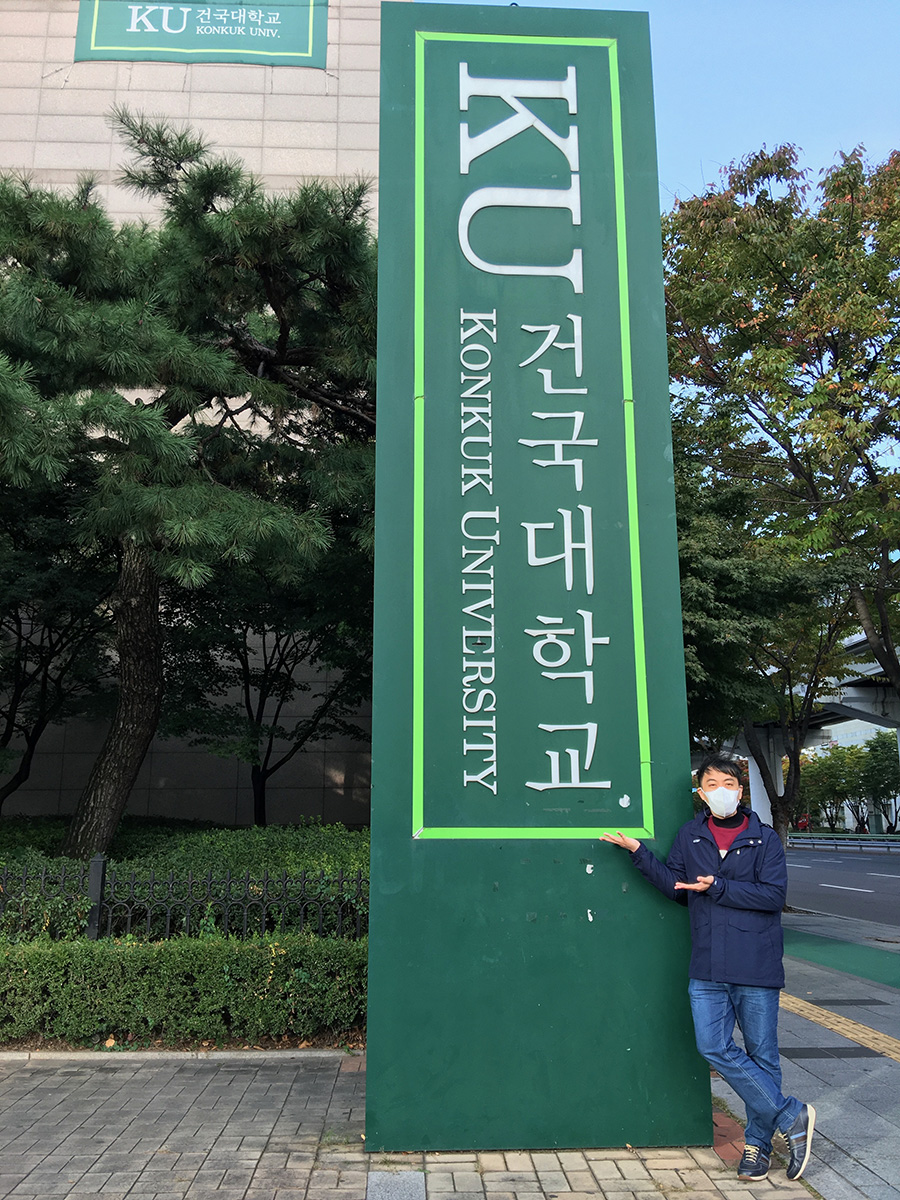
I made a pilgramage back to my Korean alma mater, Konkuk University, in 2022.
A year later, I moved on from teaching kids to college students at two reputable Korean universities: Konkuk University and Sogang University. This is where I learned a lot of my Korean here and university life. I saw firsthand what university students were actually listening to (believe it or not, it wasn't much K-pop either!).
Teaching at university was some of the best times of my life. I had the chance to teach a few celebrities (Fun Fact: Konkuk University is known as one of the the "celebrity universities" in Korea). I made some lifelong friends from my co-workers and former students. And being an instructor slowly prepared me for journalism and future careers.
While donning my university instructor cape during the day, I continued to work as an indie journalist at night.
As an indie journalist, I would write on a blog (remember those?). Yet, since I didn't have any journalism experience as a former software engineer, I was actually rejected by all the major labels when applying to cover their events. After all, they wanted experienced veterans taking those snap shots of SNSD and reporting crisp articles on 2PM.
In K-pop terms: I was a rookie group that hasn't debuted yet.
So, for the first two and a half years, I turned to the indie and hip-hop scene to level up. I was bummed out at first, since I wanted to cover the Big Bangs and 2NE1s of the K-pop world. But soon, I would not only warm up to Korean indie and hip-hop, but embrace them as my favorite genres of Korean music even today.
Although people consider me a K-pop journalist today, deep down, I consider myself a K-indie and K-hip-hop one instead. And proud of it!
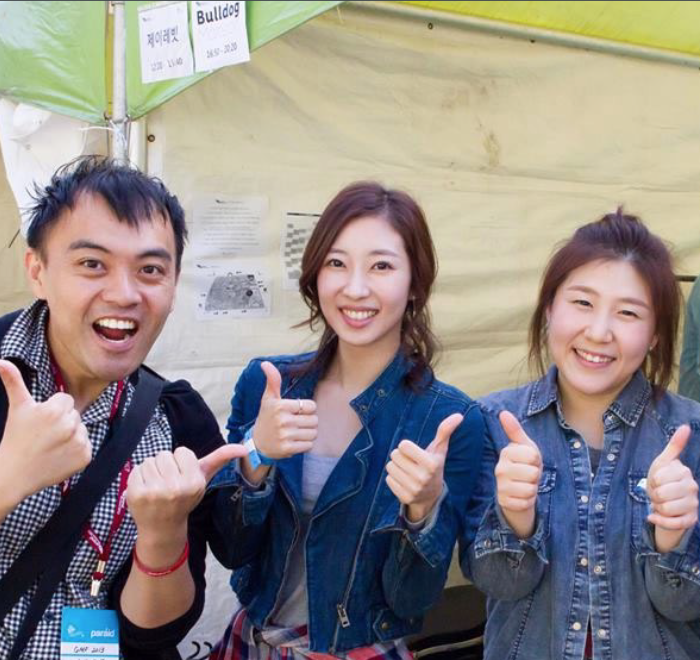
Indie duo J-Rabbit was among the first K-indie groups I covered and interviewed. They jump started my career and I owe them a lot! I'll always be J-Rabbit fan.
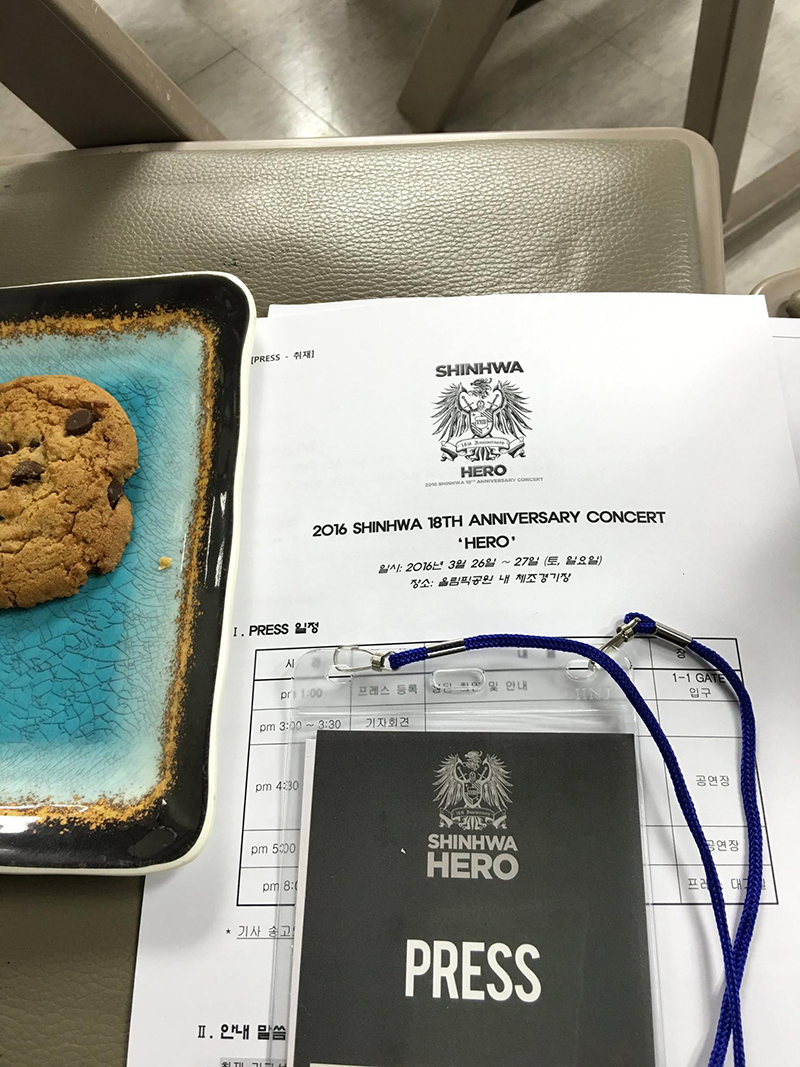
It was an honor to cover one of my favorite K-pop groups of all time: Shinhwa.
After two and half years, I eventually was accepted as an official journalist at a major media company. Throughout my journalism career, I worked at three major newspapers: Yonhap News, Korea Times, and South China Morning Post, as well as the Korean Air magazine, Calm. I wore a variety of hats: being a journalist, reporter, editor, and later team leader.
I had the honor of covering some of the biggest groups in K-pop during the 2010s - Big Bang, 2NE1, SNSD, Twice, SHINee, and EXO to name a few. I had the honor of covering iconic groups as well, such as S.E.S and Shinhwa.
I was invited to the 2014 League of Legends Championships. And I was humbled when reporting at the Busan International Film Festival. To say I experienced a lifetime of media and press events is an understatement.
After working as a journalist and reporter for several years, I wanted to see what it's like working on the other side of the K-pop industry. Instead of covering K-pop, I would now work in the inside.
I started working for Korean music labels and collaborated with K-pop labels as a data scientist and brand marketer.
Among the companies I had the honor of working with included the Recording Industry Association of Korea (RIAK), the Korean Music Awards, several K-pop labels, and many Korean music festivals.
I got to collect data, interview a slew of fans, crunch numbers, and create data graphs. My focus was on K-pop growth in East Asia, Southeast Asia, and the US. From this data, labels would use that data to make their next moves. I learned that data is no joke in K-pop, as it's extremely important in decision-making.
But as much as I learned working at various Korean labels, I wanted to go to my roots of journalism and content creator. To do that, the end goal was to eventually become independent and create videos on in-depth K-pop. To explore topics that few people and media companies talk about.
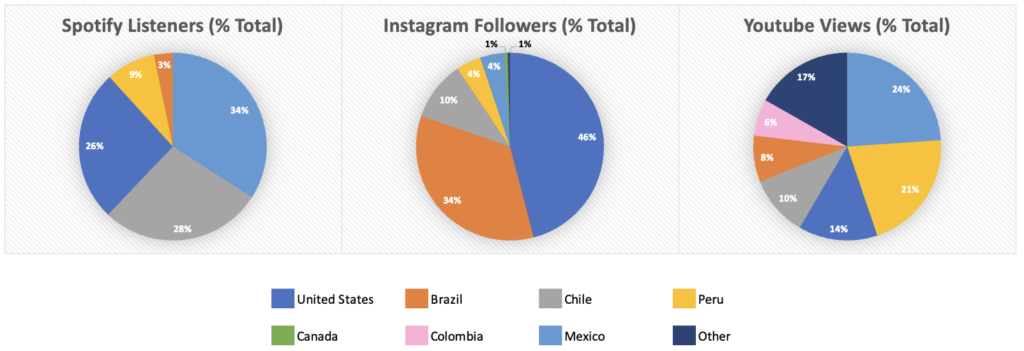
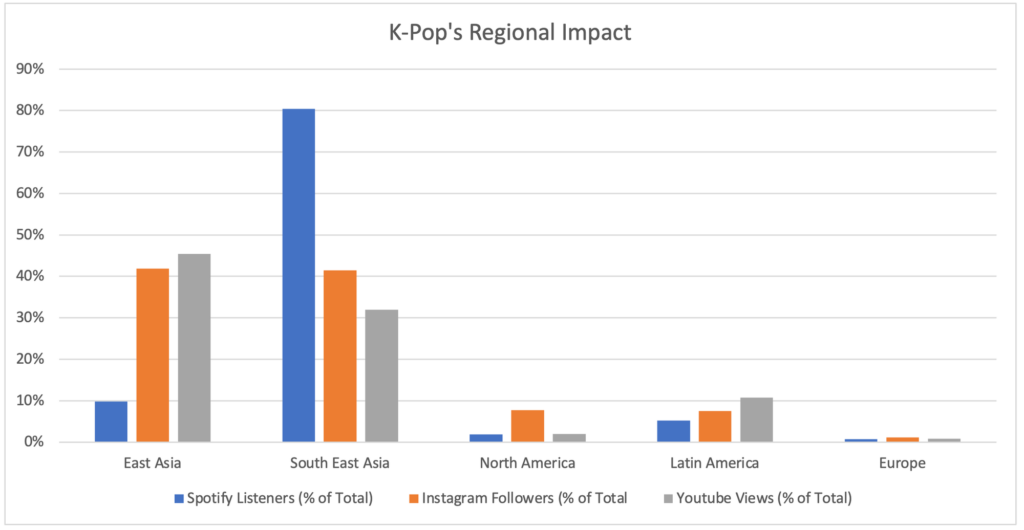
I created data graphs and pie charts like the ones above. These are not mine, but merely an example, since I was under NDA. Photo Source: HMC Chart Metric
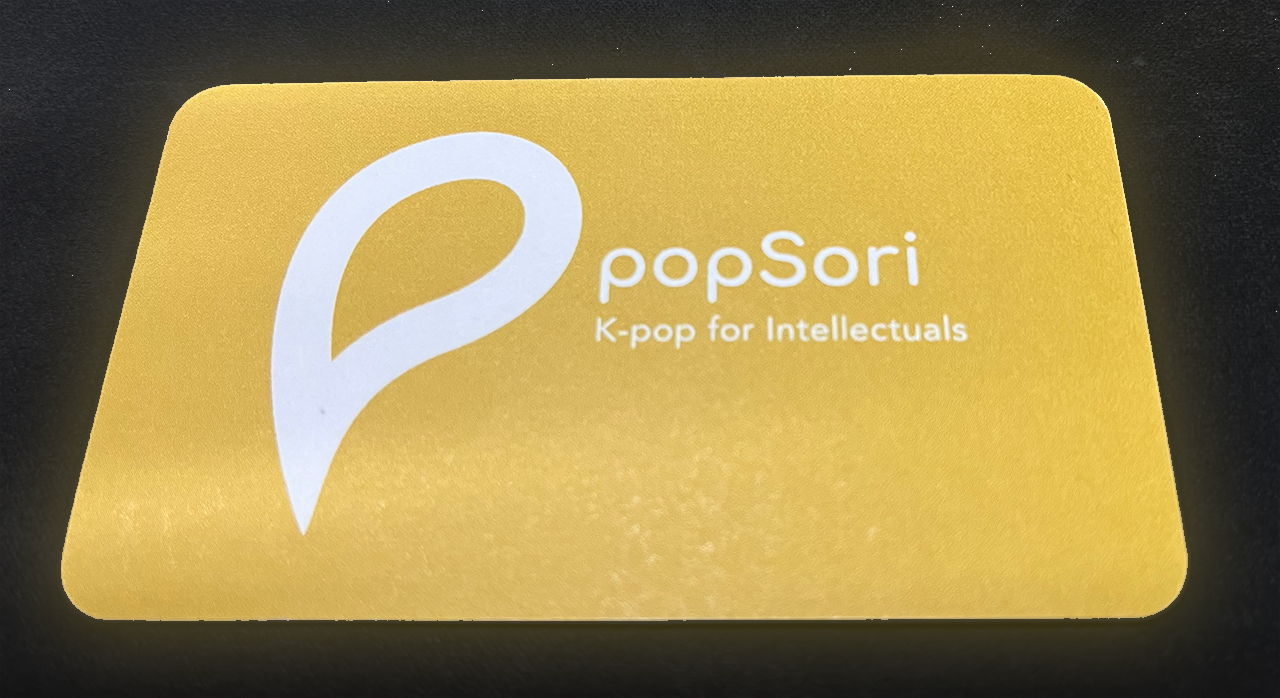
Popsori was born for fans that wanted to go deeper into K-pop topics. A place for K-pop intellectuals.
Thus, I created my YouTube channel Popsori.
At first, I was afraid no one would come. I knew the K-pop fandom is dominated by gossip, reaction, and choreography-based videos. To be honest, it still is.
In-depth K-pop videos were still new.
But over time, people started emailing me. People started leaving nice messages on my YouTube channel. Commentors told me that the channel was underrated and I deserved more subscribers. I was shocked and amazed by the support.
Soon, I had a growing YouTube channel with people that wanting to become intellectual K-pop fans.
Looking back at my K-pop experiences, I've been blessed to have been invited to over 700 events as media and press in the US, Korea, and Japan. I've covered a lot in pop culture, ranging from K-pop, J-pop, esports, anime, gaming, and film events.
It's been a long journey covering K-pop, but I'm honored sharing that journey with my audience today. I've met and talked to many K-pop fans on how the K-pop industry works.
In turn, I have been blown away with the people who come to Popsori. A lot of them drop knowledge bombs on Korean music and culture on me, making me take pages of notes like I'm in college again.
But you know, I wouldn't have it any other way. K-pop, like life, is all about learning and I'm all about that.
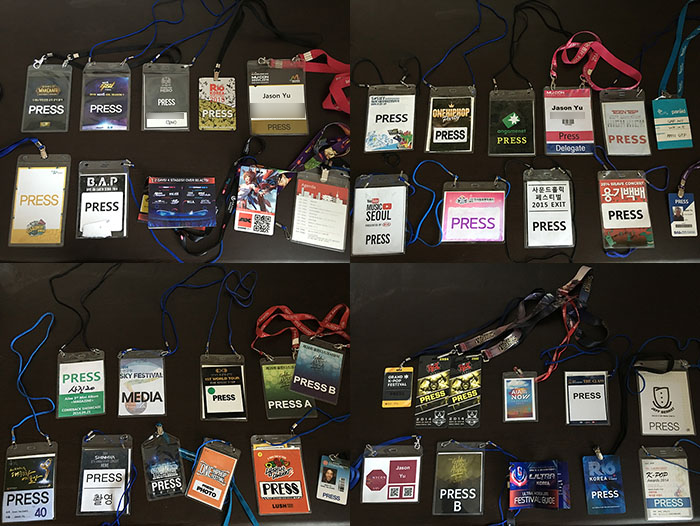
One of the cool things covering K-pop in Korea is you get to collect a ton of press/media/VIP badges like Pokemon. I had to collect them all!
Some Celebrities I've Met
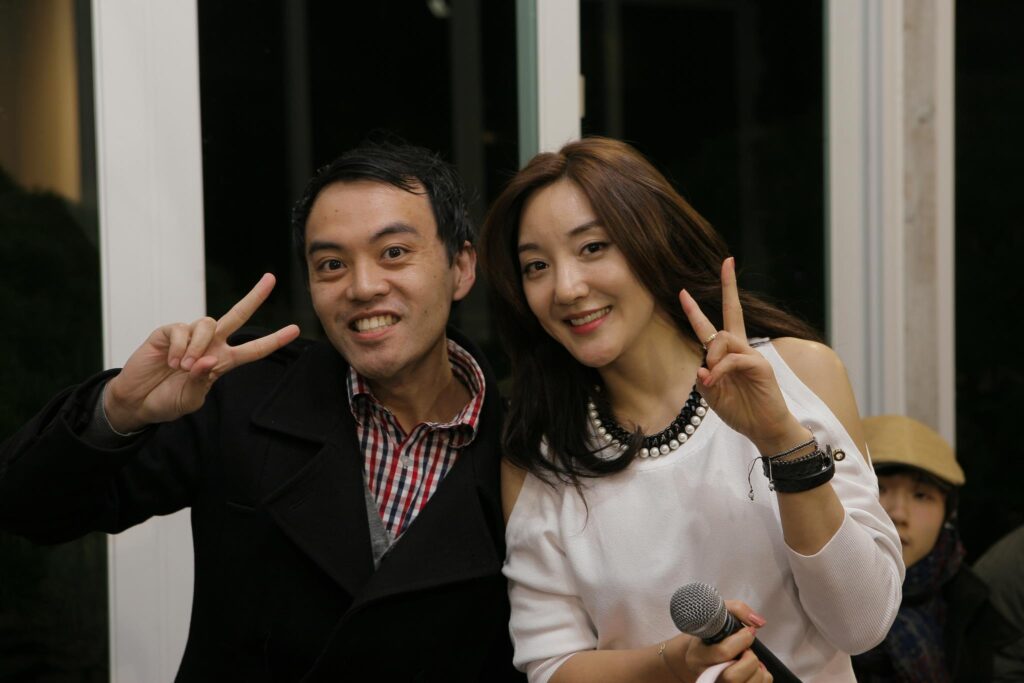
Meeting Bada from S.E.S in 2012 at the 15th S.E.S Anniversary.
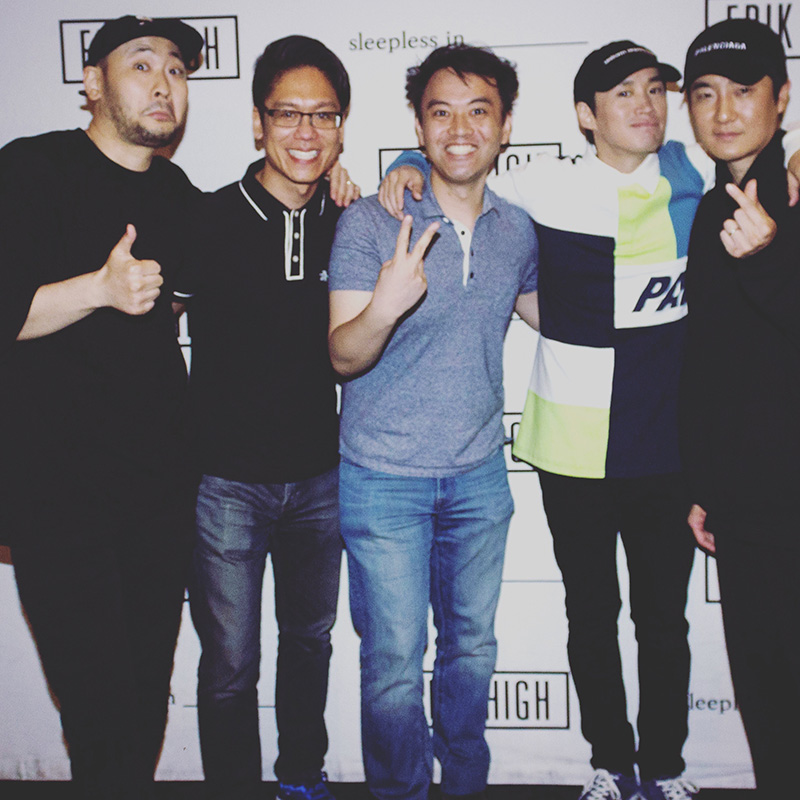
Meeting Epik High with a friend in Oakland, CA.
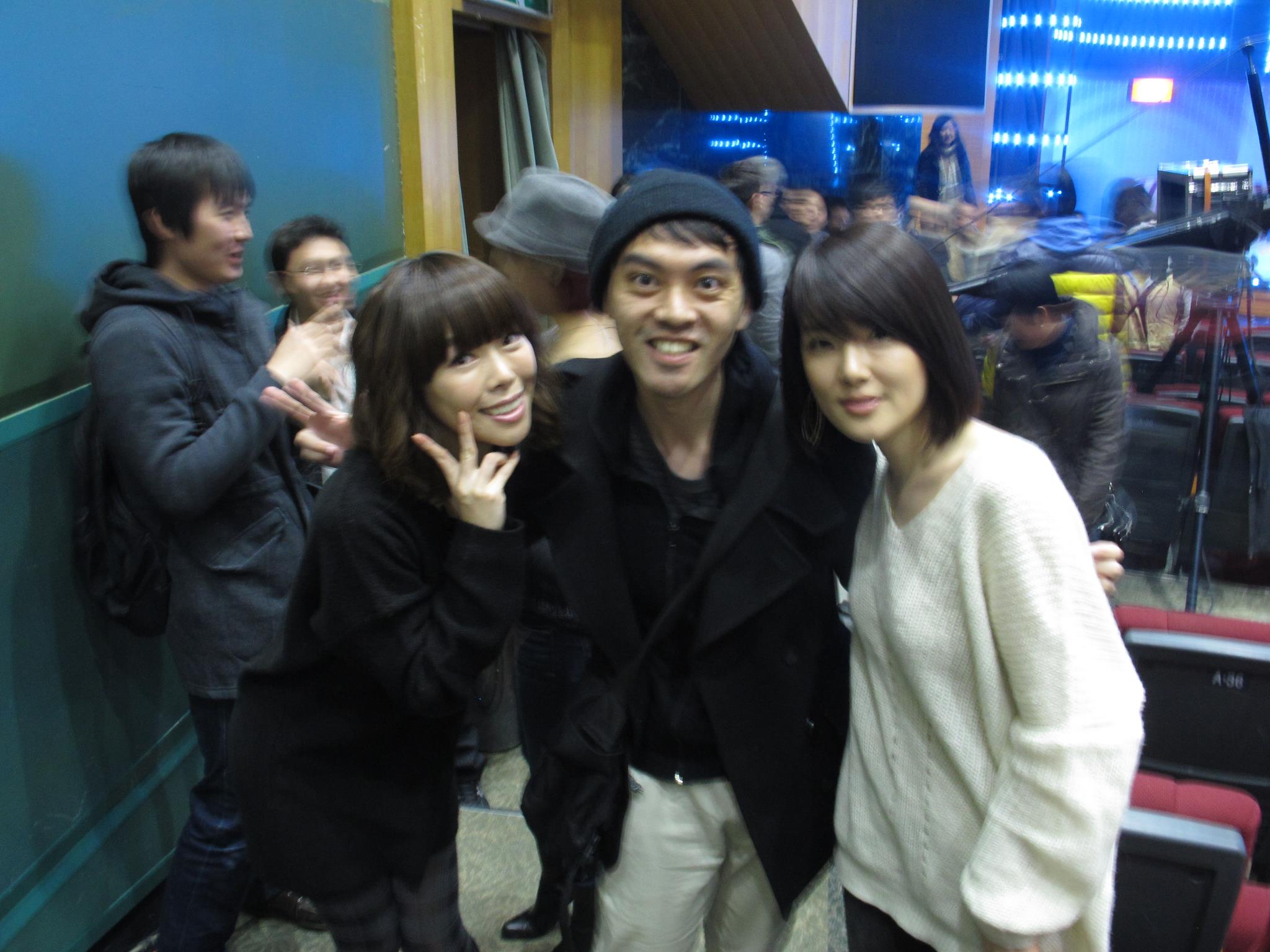
Meeting duo, As One, at my Korean alma mater, Konkuk University, in 2012.
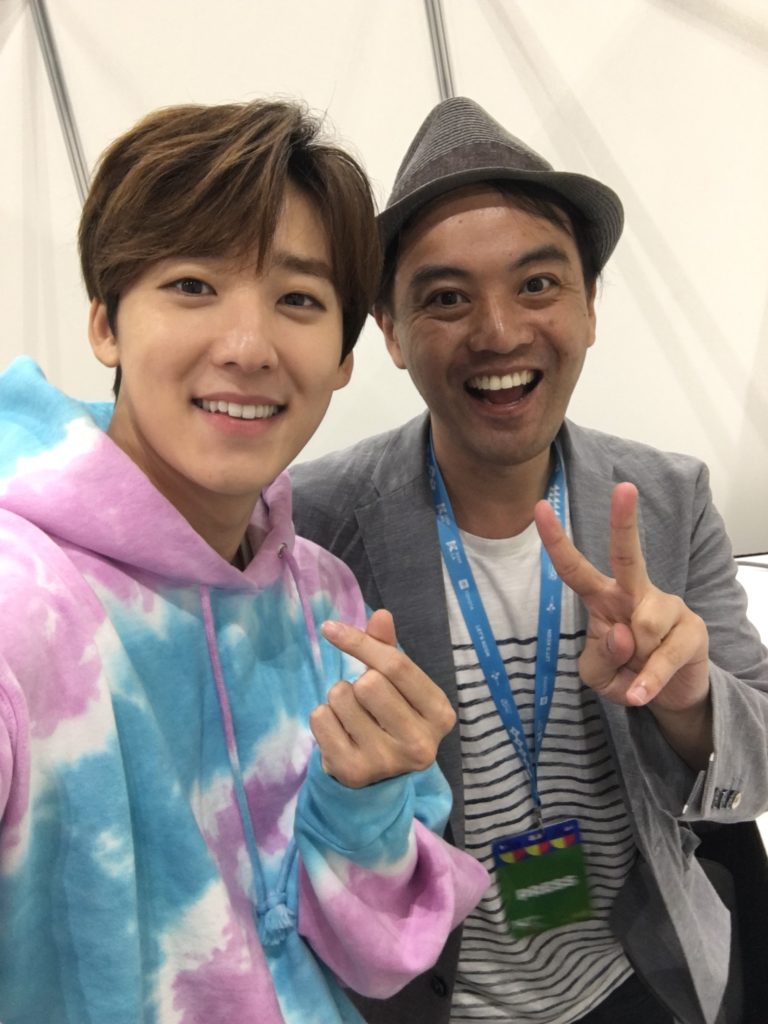
Meeting Kevin Woo in 2019 at KCON LA.
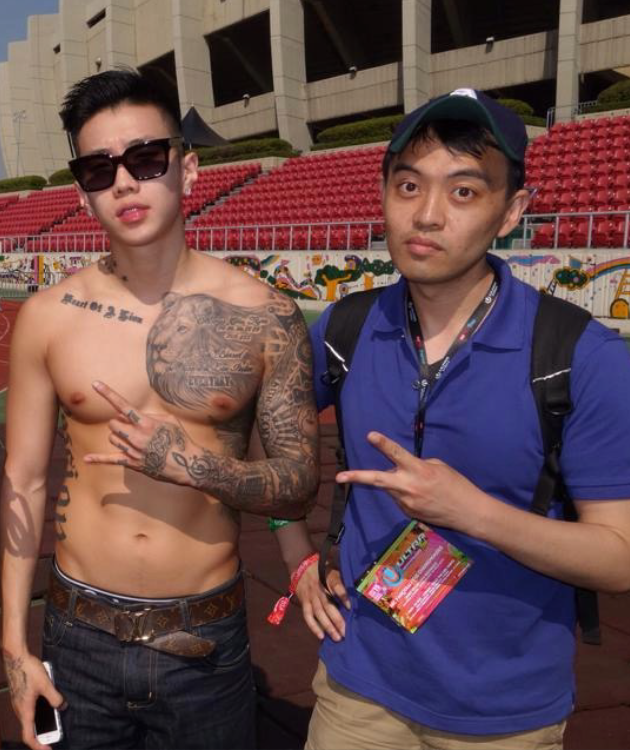
Met Jay Park at Ultra Korea 2015 backstage.
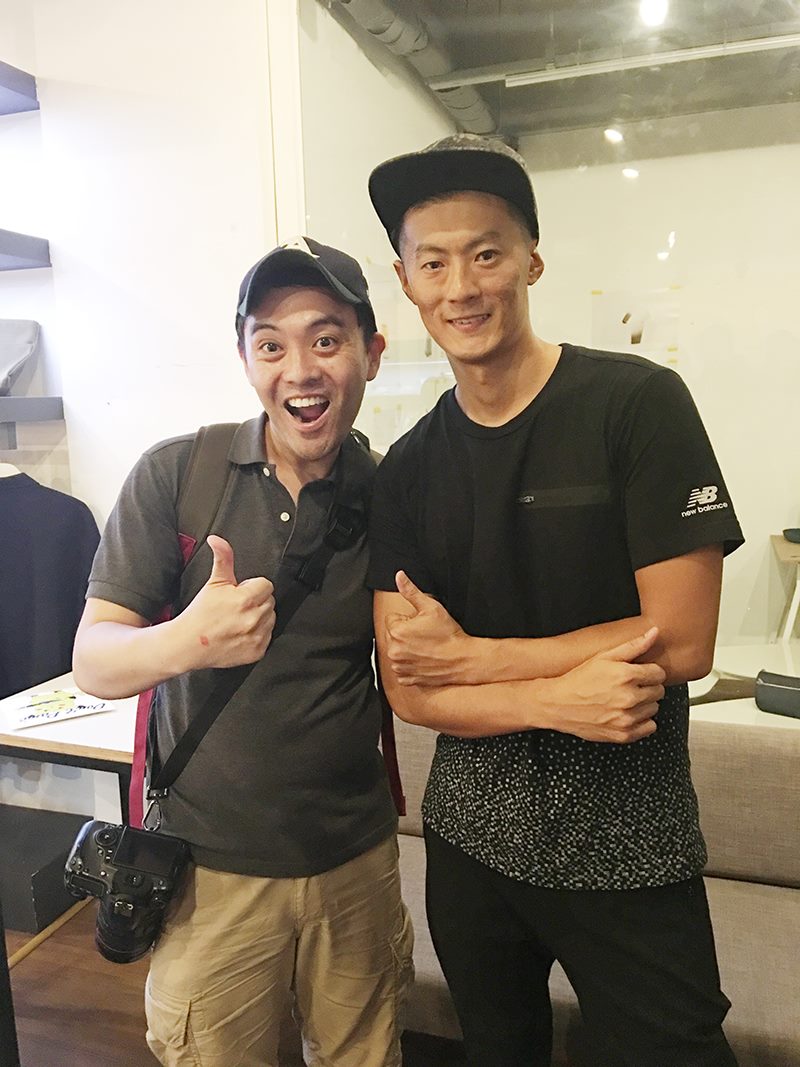
Met Japanese-American rapper Shing02 in 2016 (I actually met him three times: 2013, 2014, and 2016).
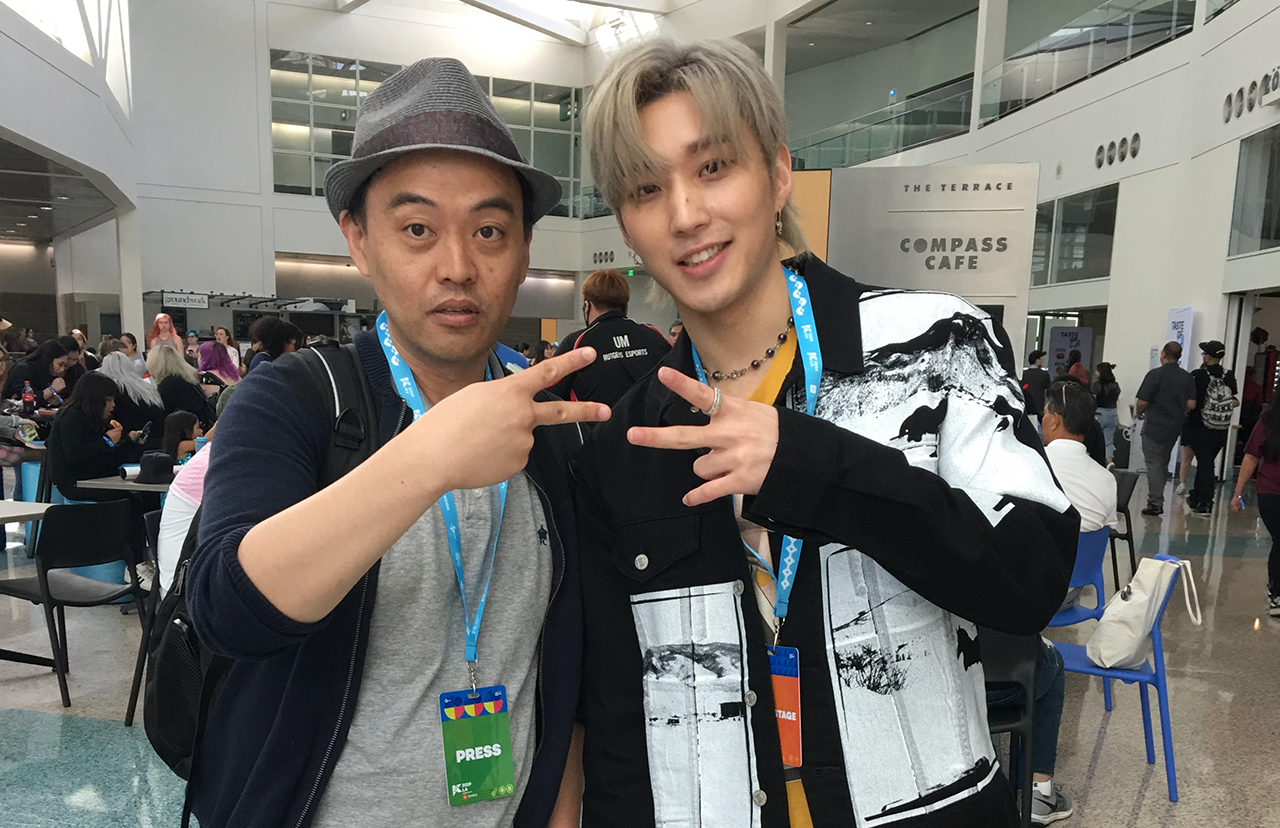
Met former B.A.P member Jongup at KCON 2019. (Despite my exhausted face, I was estatic to meet him!)
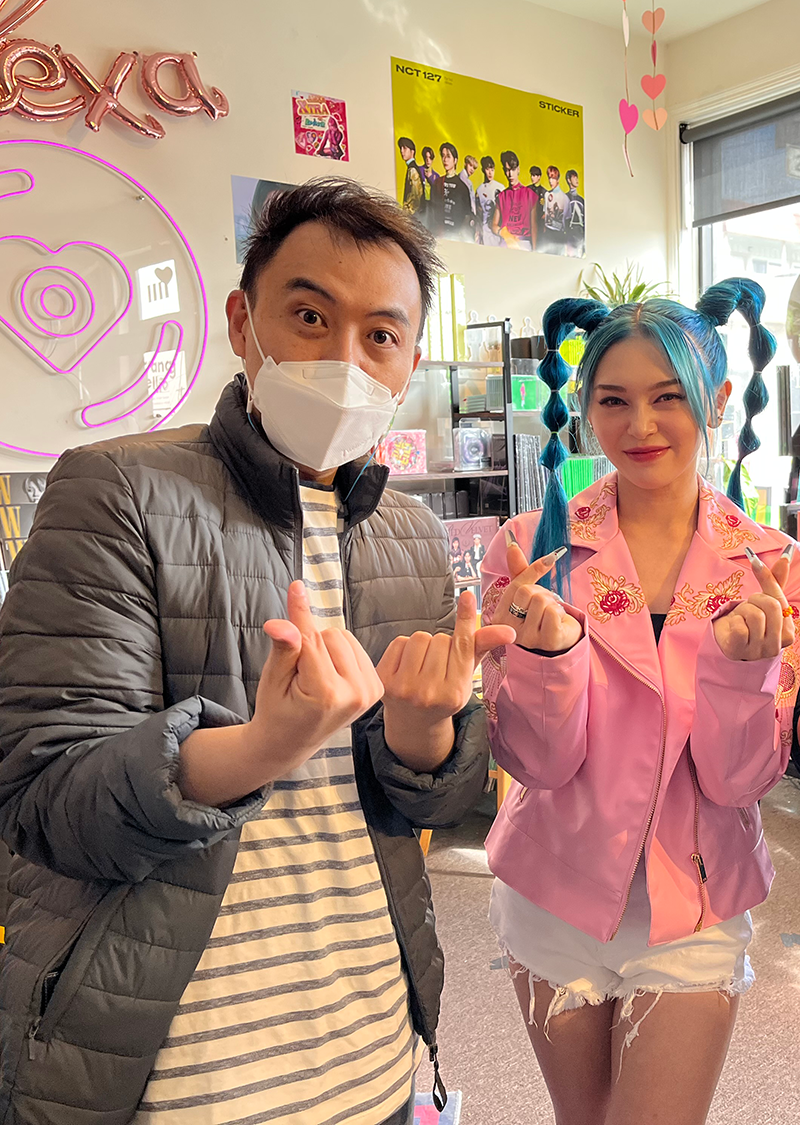
Met Alexa in 2022 in the SF K-pop store, SarangHello.
The Craziest Experience
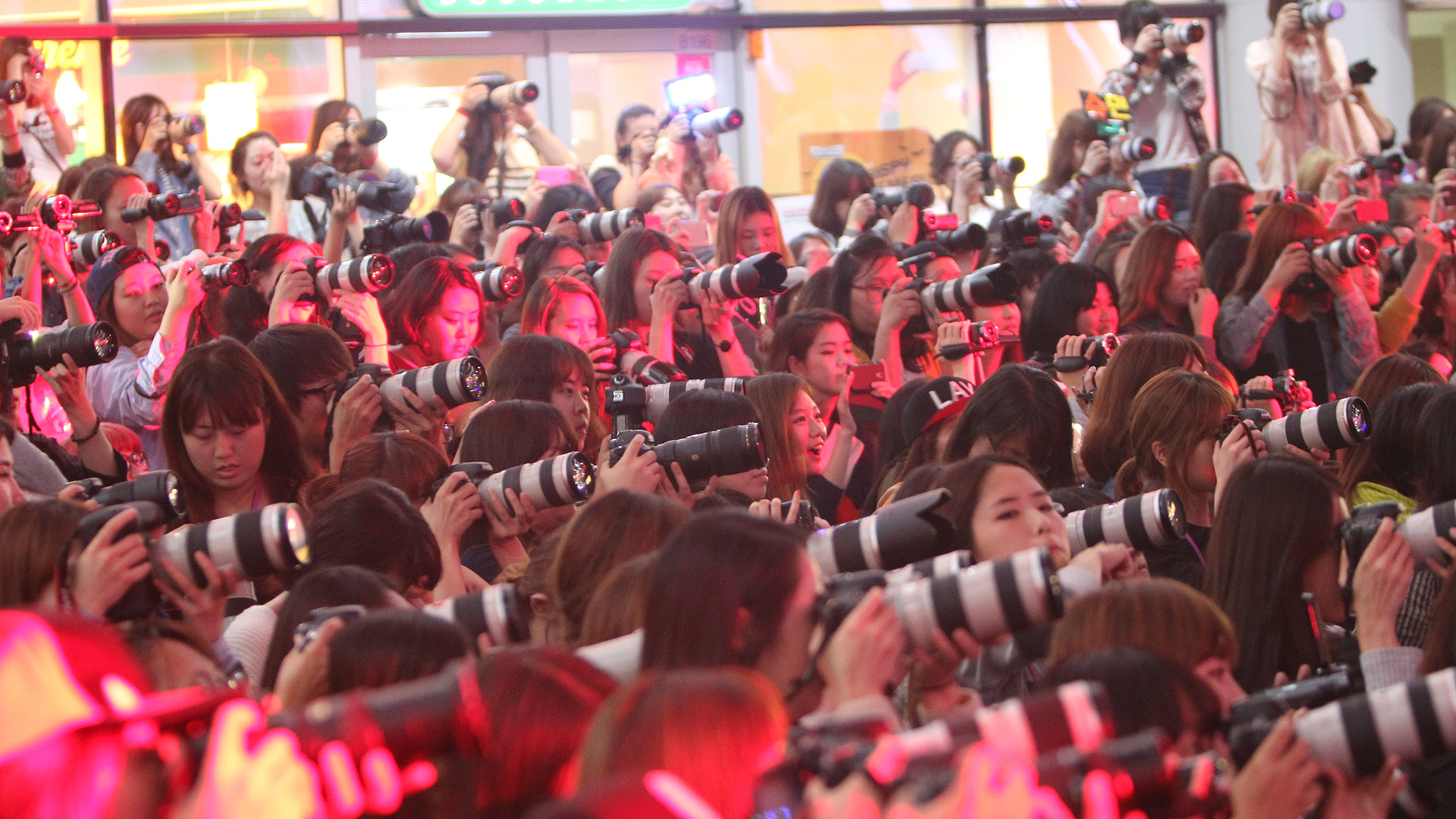
You haven't lived the K-pop life until you've seen rapid EXO-Ls (EXO fans) in Korea! I haven't seen so many DSLR 70x200 lens in one spot before.
Without a doubt, EXO mania in 2013. This photo above is an EXO fan meeting back in Hapjeong, Seoul. There were a ton of media and a lot of middle school and high school students that skipped their after-school academies that night.
My ear drums were assulted that night from the constant "OMG OMG EXO!!!" screams. But at the same time, those fan chants and excitement showed me that K-pop was exploding throughout Korea and much of Asia, I'll never forget. Good times!
------
If you read this far, chances are you're into learning about K-pop. Good stuff! Whether you're a newcomer to K-pop, an old-school K-pop fan, or live and breathe this stuff, I got your back!
Here you'll learn what it's really like working in K-pop from a person that lived in that industry. You can expect some fun and educational content here.
I hope you learn a bit more about K-pop and become "a K-pop intellectual!"
Random Fun Facts
Now that we're cool with each other, here's a couple random facts about me:
- As mentioned in the beginning, I lived in Korea for 12 years. But I also grew up in Japan for seven years as a teenager, making me a Third Culture Kid (TCK).
- I got into K-pop in 1997 while living in Japan. I was listening to J-pop at the time and stumbled on K-pop by accident. From there, I was hooked on Korean music.
- While I lived in Japan for seven years and somehow even passed the N2 test a long time ago, I suck at Japanese. As in, I should start from beginner Japanese again. It's a shame I didn't keep up with it.
- Fortunately, my Korean is a lot better, as I passed the highest test - TOPIK 6. So, at least we got that going for us 🙂
- I love gaming (PC and console) and it's one of my huge passions.
- In fact, before embarking on my K-pop journey, I thought I would be a programmer in the games industry and majored in computer science.
- Love to dance and do karaoke / noraebang, but my singing sounds like screeching siren (e.g. terrible.)
- I can't go a day without drinking coffee or milk tea.
- My email (listed below) "Jangta," is actually inspired from 1st gen K-pop singer Kangta from H.O.T. I just changed the "K" to a "J" and the alias "Jangta" was born.
Thanks for reading and I hope you learn more about Korean music and Korean culture here!
If you're interested any business related matters or simply reaching out, my email is: jangta[at]popsori.com
(replace the "[at]" with @)
